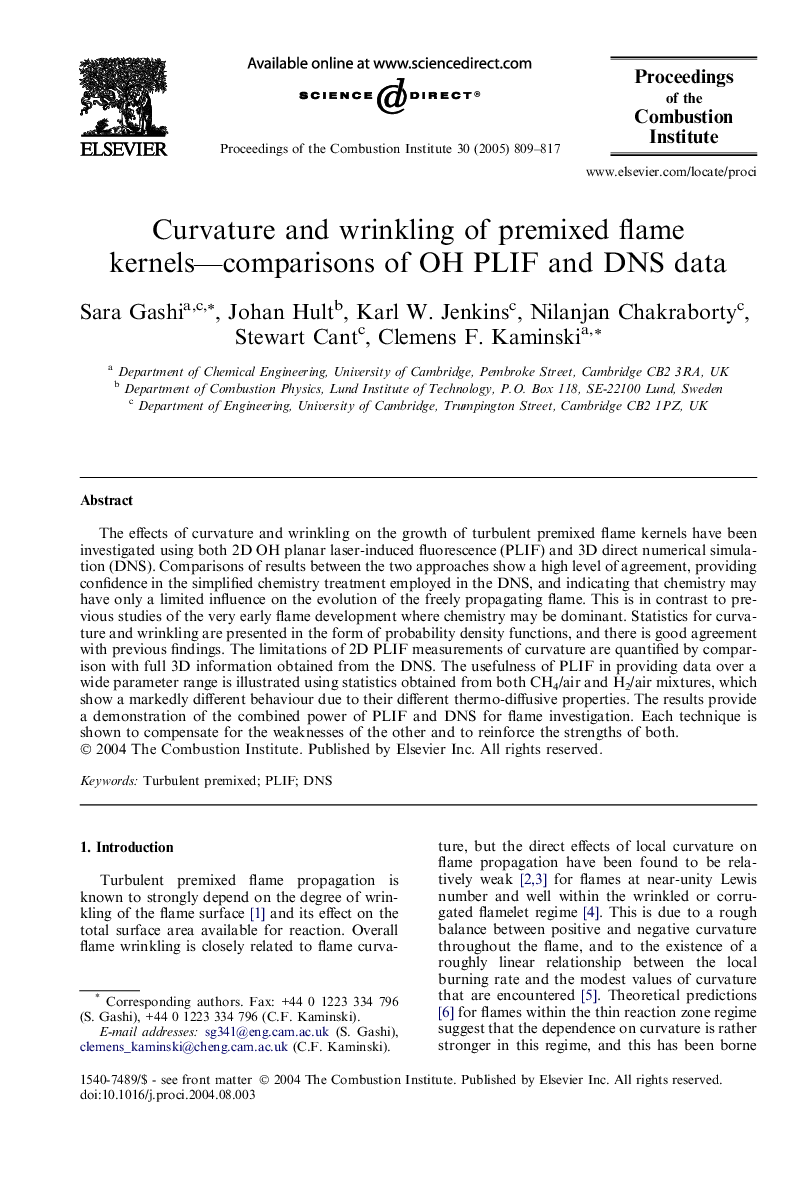| Article ID | Journal | Published Year | Pages | File Type |
|---|---|---|---|---|
| 9637406 | Proceedings of the Combustion Institute | 2005 | 9 Pages |
Abstract
The effects of curvature and wrinkling on the growth of turbulent premixed flame kernels have been investigated using both 2D OH planar laser-induced fluorescence (PLIF) and 3D direct numerical simulation (DNS). Comparisons of results between the two approaches show a high level of agreement, providing confidence in the simplified chemistry treatment employed in the DNS, and indicating that chemistry may have only a limited influence on the evolution of the freely propagating flame. This is in contrast to previous studies of the very early flame development where chemistry may be dominant. Statistics for curvature and wrinkling are presented in the form of probability density functions, and there is good agreement with previous findings. The limitations of 2D PLIF measurements of curvature are quantified by comparison with full 3D information obtained from the DNS. The usefulness of PLIF in providing data over a wide parameter range is illustrated using statistics obtained from both CH4/air and H2/air mixtures, which show a markedly different behaviour due to their different thermo-diffusive properties. The results provide a demonstration of the combined power of PLIF and DNS for flame investigation. Each technique is shown to compensate for the weaknesses of the other and to reinforce the strengths of both.
Related Topics
Physical Sciences and Engineering
Chemical Engineering
Chemical Engineering (General)
Authors
Sara Gashi, Johan Hult, Karl W. Jenkins, Nilanjan Chakraborty, Stewart Cant, Clemens F. Kaminski,
